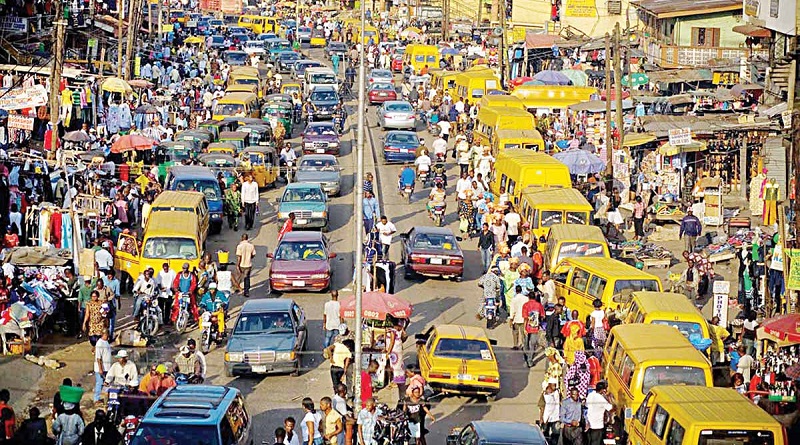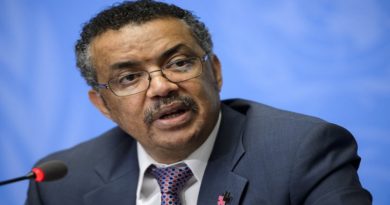How rapid urbanisation increases climate risk to people
Rapid urbanization is making people more vulnerable to the impacts of climate change, according to a new UN report that highlights diverse initiatives worldwide that are bolstering the resilience of cities, towns and villages.
More than half the world’s population today live in cities, and another 2.5 billion people are expected to join them by 2050. The frequency of torrential rain and storm surges is on the rise in big, densely populated cities like New York, Mumbai and Jakarta, hitting those living in marginalised, informal settlements like slums the hardest. Desertification swallows arable land needed to feed swelling urban populations. And sea level rise threatens everyone living in coastal areas, delta regions, and small-island countries.
To combat these threats to sustainable development, numerous cities have taken steps to build resilience and address the growing climate-related risks posed to inhabited areas. Through initiatives such as 100 Resilient Cities and the Global Covenant of Mayors, leaders of cities have shown commitment to work together to address climate change and its impacts. Support from global organizations such as the World Bank, ICLEI, UN-Habitat, have also made various resources available to policy-makers, practitioners and even individuals willing to take action.
The authors of the report “Initiatives in the Area of Human Settlements and Adaptation” compiled a summary of some of the most prominent global and regional initiatives that support adaptation and climate resilience in cities, towns and villages. The study is structured around the five opportunities for action offered by those initiatives: learn, access technical support, commit, finance, and unite. The report underscores the diversity of those initiatives, as well as the evolution of the services they have provided over the past decade.
Some of the inspiring global and regional initiatives focusing on urban resilience mentioned in the report are:
1. Learn: Urban Climate Change Research Network
A consortium of over 700 scholars and experts dedicated to climate analysis in cities, the Urban Climate Change Research Network has contributed to efforts to increase access to climate knowledge. Based at the Columbia University Earth Institute in New York (USA) since 2007, this global program is committed to support city-level actions through projects such as global reports, an online case study docking station that stores 115 empirical experiences in cities, as well as Regional Hubs. Learn more.
2. Access technical support: 100 Resilient Cities & the Asian Cities Climate Change Resilience Network
The 100 Resilient Cities program was launched by the Rockefeller Foundation in 2013 as a way to select 100 cities to be provided with necessary resources in developing road maps to resilience. Support that has been provided ranges from financial and logistical guidance, expertise in strategy development, access to solutions and service providers, as well as membership to a global network of cities. Learn more.
The Rockefeller Foundation, through a partnership with the European Commission and ICLEI’s network of regional secretariats, previously implemented the Asian Cities Climate Change Resilience Network in 50 cities across India, Indonesia, Thailand, Vietnam, Bangladesh, and the Philippines. It shares the 100 Resilient Cities’ mission to equip cities in building resilience to the physical, social and economic challenges of the 21st century. Learn more.
3. Commit: Global Covenant of Mayors for Climate and Energy & the Covenant of Mayors in Sub-Saharan Africa
The Global Covenant of Mayors for Climate and Energy is the largest global coalition of cities committed to climate leadership, comprising more than 7,100 cities from 119 countries. Launched at the beginning of this year, this coalition is a merger between the existing Compact of Mayors and European Union Covenant of Mayors for Climate and Energy. Learn more.
At the regional level, the Covenant of Mayors in Sub-Saharan Africa has also been funded by the European Commission in order to increase African cities’ planning capacity and provide a platform to share knowledge and best practices. Learn more.
4. Finance: Sustainable Cities Integrated Approach Pilot
The Sustainable Cities Integrated Approach Pilot is a program of the World Bank that aims to mobilize 1.5 billion over 5 years to support various urban sustainability projects in 23 cities across 11 pilot countries. The program is supported by a grant from the Global Environmental Facility, and will be implemented in partnership with African Development Bank, Asian Development Bank, Southern Africa Development Bank, Inter-American Development Bank, UNEP, UNDP, and UNIDO. Learn more.
5. Unite: Global Alliance for Urban Crises
Launched at the World Humanitarian Summit 2015, the Global Alliance for Urban Crises seeks to address challenges at the intersection of urbanization, conflict, displacement, and climate change. More than 65 organizations had joined the alliance, with the big goal to ensure that stakeholders can work effectively in towns and cities affected by crisis. Learn more.
There are fewer initiatives focusing on climate-resilience in smaller towns and villages, particularly in rural and remote areas, but the Cities and Climate Change Initiative (CCCI) is an important example on what is possible:
UN-Habitat’s CCCI is an initiative aimed at building the adaptive capacity of cities in developing countries with a focus on “pro-poor” participatory planning. Among others, the initiative supports projects to build resilience in villages in the southern part of Lao People’s Democratic Republic, as well as remote settlements such as the Solomon Islands’ capital, Honiara.




